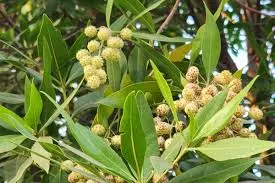GHMC Chops Conocarpus Trees
The GHMC's urban biodiversity (UBD) wing cited the adverse effects of Conocarpus pollen on respiratory health.

Hyderabad: Urban local bodies, including the GHMC, have begun axing large portions of Conocarpus trees planted along central medians of main roads, aiming to prevent them from flowering due to reported health hazards.
The GHMC's urban biodiversity (UBD) wing cited the adverse effects of Conocarpus pollen on respiratory health. “The pollen grains released by the flowers can trigger asthma and other allergic reactions in sensitive individuals,” said a GHMC official. “Not everyone is affected, but those with weaker immunity or pre-existing conditions are at risk,” he added.
Officials clarified that only the flowers pose a health concern; the leaves and other parts of the tree are considered harmless. On stretches like Banjara Hills Road No. 2, LB Nagar Main Road, Himayatnagar Main Road and Suchitra Main Road, most Conocarpus trees have been pruned down to their trunks, with only a few branches left intact. The GHMC plans to develop topiary-style greenery on these medians, which will not produce flowers.
Another reason for trimming the trees is to address road safety concerns. During the monsoon, overgrown branches may fall and obstruct traffic. Trimming them improves safety and enhances the visual appeal of the medians,” the official said.
There is no directive from the municipal administration and urban development (MA&UD) department to trim Conocarpus trees. As a result, trees on pavements remain untouched, while local officials at the circle level have taken the initiative to trim those on medians. The issue has sparked debate, with some citizens demanding the complete removal of Conocarpus trees, while others urge their preservation and better care.
Initially chosen by ULBs for their low-maintenance appeal, Conocarpus trees are now being re-evaluated. “The belief that Conocarpus doesn’t require water is a myth. If not watered, the tree takes longer to dry out compared to other species, but it still suffers,” said an MA&UD official.

